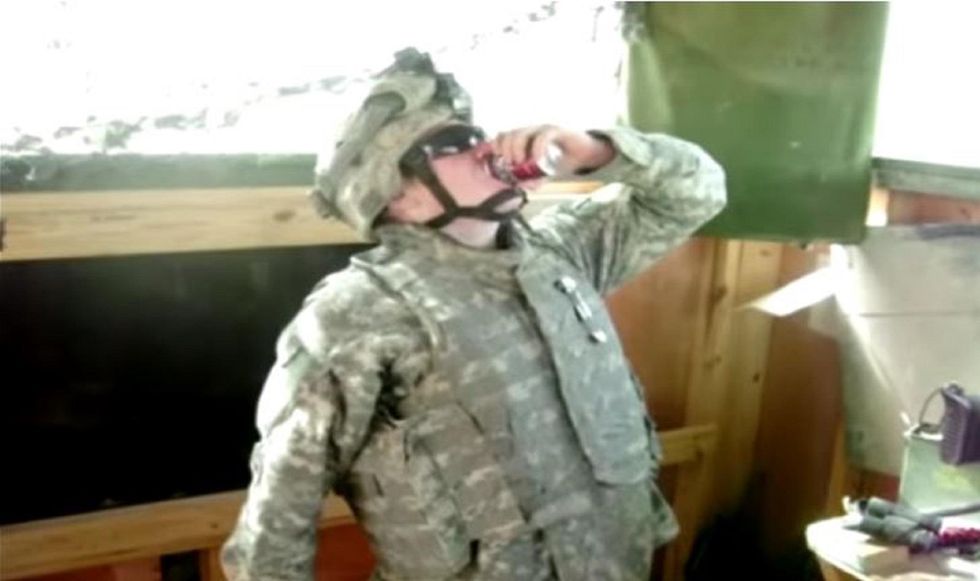
A new study found a link between high energy drink consumption and PTSD among previously deployed Army personnel. (Image source: YouTube screencap)

A new study found that the consumption of energy drinks could be contributing to post-traumatic stress disorder and other mental health problems among U.S. soldiers.
The analysis published by Military Medicine was conducted after surveying 627 male Army personnel seven months after returning from a year-long combat deployment to Afghanistan.
Soldiers were asked how frequently they had consumed energy drinks such as Red Bull, Rockstar, or Monster over the past month, and were quizzed on mental health variables such as depression, anxiety, PTSD, and alcohol abuse.
The authors found that more than 75 percent of respondents consumed energy drinks, and 16 percent reported "high use," defined as two or more cans per day.
"A key finding was that mental health problems (i.e., depression, anxiety, PTSD, and alcohol misuse) were strongly associated with high levels of energy drink use," the researchers found.
The data also showed an association between energy drink consumption and fatigue — suggesting "that energy drink use may potentially exacerbate, rather than alleviate, fatigue."
"These findings are important to consider from a policy perspective, given the association between protracted fatigue and problems such as poor job performance or making mission critical errors," the study warned, noting that energy drinks were often distributed at no cost to service-members during deployments.
Another noteworthy discovery by the researchers was that this study sample showed a five-fold higher energy consumption rate than previous analyses of Air Force personnel and young people in the general population.
Despite the popularity of energy drinks — which the study says is an annual $21 billion industry in the U.S. — experts have long warned against their overconsumption for years, due to the amount of caffeine, sugar, and other ingredients they typically contain.
Sports cardiologist Dr. John Higgins of the University of Texas told CNN last year, "[Energy drinks are] sort of a black box. We really don't know a lot about them."
Higgins noted, "There's been several cases described of people that have gone into cardiac arrest after consuming more than one energy beverage, and when they've done sort of further analysis on these individuals, they haven't been able to find anything abnormal other than the very high levels of caffeine and taurine in the toxicology."
While the health effects of long-term energy drink consumption are unknown, the military has been tracking the effects on troops for years.
A 2010 study by the Walter Reed Army Institute of Research also found a link between high consumption of energy drinks and performance issues.
"Those who drank three or more drinks a day also were more likely to report sleep disruption related to stress and illness and were more likely to fall asleep during briefings or on guard duty," the authors determined.